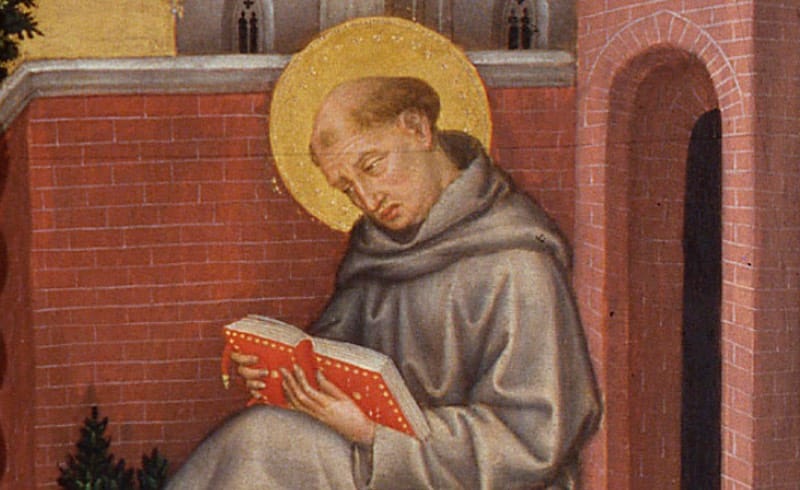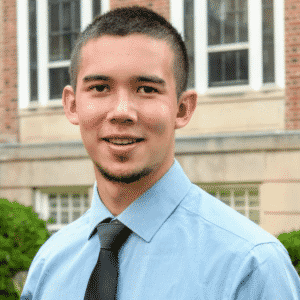September 8, 2020
Perfect for printing: Download this newsletter in PDF format
- Paulist Charism and the Non-ordained
- 2020 Paulist Novitiate Class
- Proposed Program for September: Thomas Aquinas
- Renewing Promises and Updating Lists of Associates
- Paulist Associate News
- Prayer for the Intercession of Father Isaac T. Hecker
- Contacts
- Promise
By Denis M. Hurley, Boston Associate, currently sheltering in the Berkshires and teaching Boston University classes remotely.
(Father Mike Kallock, CSP, the Director of the Paulist Associates, asked me to expand in these pages on some of the comments I made about the group when I was interviewed by Mike Hayes for a “Five Questions” video. Watch the video above.)
It took me a while to decide to become an Associate.
I’m not a joiner by inclination and, through most of my adult life, I’ve pretty much stayed away from belonging to anything that wasn’t a softball team.
Several prods from Ruben Patino, CSP, and the example of my Paulist Center Boston community members Mary Burke and Paula Cuozzo initially pushed me to the, “Maybe I’ll try it” stage. At the time, Brian Flanagan was the only male in the Boston group. Practically as soon as I made my promises, he moved out of town, leaving me to hear my wife ask, “Goin’ out with the girls?” every time I left the house for an Associates meeting. (That has changed over time.)
Moving ahead several years, I find myself sitting in my COVID-free “shelter” looking at a ZOOM rectangle in which Mike Hayes is holding up fingers and asking me what an Associate is and why I am one.
Fortunately, I’ve had some time to think about it, and I tell him I’m an Associate because Associates are non-ordained (not “lay!”) people who “buy into” the Paulist charism and that I fit that description. What Mike didn’t ask me to expand on – thank goodness! — was how I describe this “Paulist charism” that I claim to be so attracted to.
Coming to the task of writing this article has forced me to try to clarify that definition in my mind and to speak it in writing.
I’ll begin by telling you that I’m writing this after over 50 years of teaching subjects ranging from classical languages to French literature to newswriting and editing and, finally, to where I am now, teaching a college course in Mass Communication Research at Boston University. More importantly, though, is that all those years and all those different forums have led me to determine that teaching is really about getting students to ask, “Why?” … and, following that, perhaps, “How?”
So, answering the question Mike didn’t ask has naturally become for me a longer question: “What are the elements of the Paulist charism that attract me, and WHY is that so?”
OK. Some revelatory moments:
- Some time ago, I spent a long afternoon in talking with a Paulist priest who was recovering from a frightening illness. I listened to him describe his state of mind during that time and I learned a good deal about what “holiness” means.
- I have, on many occasions, watched another Paulist, as he was, time and again, able to turn listening to what others had to say into an active and generous ministry.
- I have been awed at liturgies where one remarkable Paulist pastor, just by being himself, spiritually embraces an entire congregation and carries them with him to the places where the liturgy is supposed to take us.
- I have heard and read a Paulist musician lead us mystically “beyond the days of hope and mystery” and, with a different skill, into the down-to-earth experiences of Californians enacting the “liturgy of life.”
All good things, each admirable in itself, but all very different. So, how do those experiences begin to answer the question?
For me, it took a step toward coming together when I watched “Isaac Hecker and the Journey of Catholic America,” the documentary by Tom Gibbons, CSP. These Paulist priests I thought (The four I mentioned above are in many ways very different from each other.) all seem to share something, some commitment, some common idea of how things should be.
(This, by the way, is not the part where I pull back the curtain and tell you in definitive terms exactly what that commitment, that commonality is. The other thing I’ve learned from teaching is that the questions are generally far more complex than the alleged answers.)
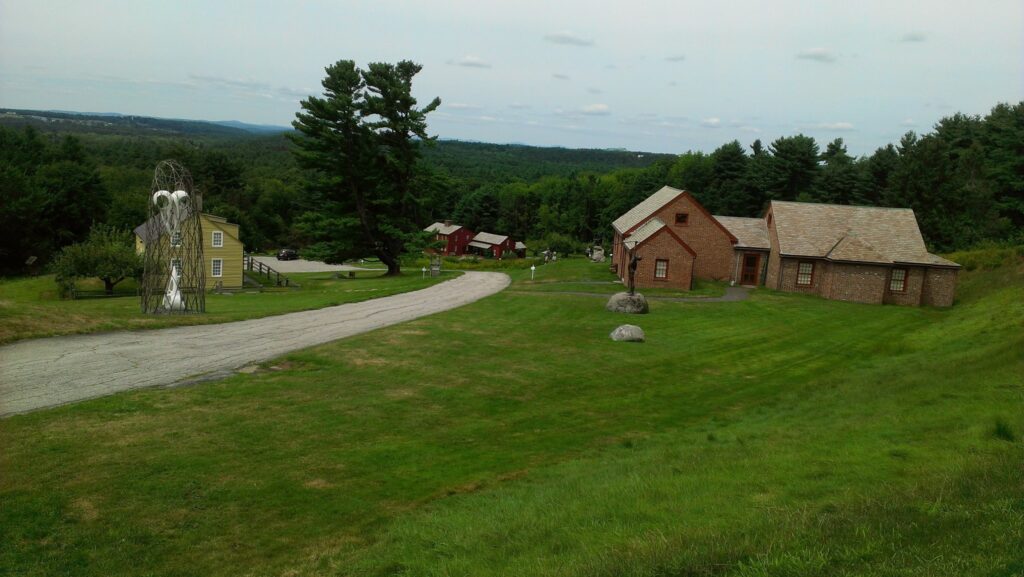
But, the Hecker documentary, along with the reading about Hecker I’ve done, reinforced my thinking that the questions – the whys and hows – were really what Hecker was about. It took him (figuratively) forever to figure out that Catholicism was a place he could begin to grow his garden. It took him discussions and arguments and reading and writing and publishing and consulting with prospective saints and popes and sages and his Paulist brothers throughout his entire life to try to come to a place where, I suspect, he still had a lot of questions.
Hecker spent a good deal of time trying to equate Catholicism with American democracy and to explain the reasons that the ideals of those two systems were inevitably compatible. I often feel he was probably overly optimistic – perhaps about the ideals of both of those human-mediated institutions. But I wonder – without the arrogance to even suggest that I am correct – whether what he saw as common to Catholicism and democracy is what I’m seeing in this “Paulist Charism.”
Was it that all those things encouraged finding the sameness in diversity?
Watching Tom Gibbons’ film, I kept remembering Paulists I’d met who were so different from one another and yet who seemed so compatible and so identifiably Paulist. Different people on different paths to the same goal, and yet respecting and even reveling in the others’ ways of being and doing.
That may be where part of the “why” of the question implicit in my discussion with Mike Hayes can possibly find some explanation.
(Note all the provisos in that last sentence: The best you’re going to get is, “Could be.”)
But, evidence lies in my sense that Paulists have always accepted and respected me and the path I’m on.
They have put up with my questions and my idiosyncrasies. They have encouraged me to join in their ministries.
They have listened to and heard things I have had to say. They have prayed with and for me. They have taught and challenged me.
Just as they do for one another.
And that’s as close as I can come to describing the “charism” that made me and keeps me an Associate.
But it doesn’t answer anywhere near all the questions, especially the one that can’t help coming to mind in this intrinsically gender-challenged Church: “What in the Paulist charism or in whatever other explanation has attracted so many women to the Associates path?”
I’d like to hear as many answers as that as I can for publication in our next issue and perhaps beyond.
.
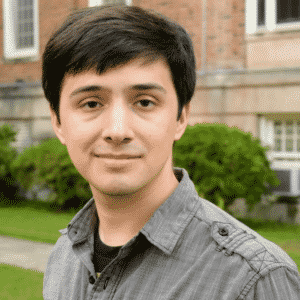
Luke Heffernan, 23, was born in Indiana, but moved six different times before his family settled in Texas. He is the eldest of three siblings, with his two brothers being two and four years younger. Luke graduated from The University of Texas in Austin with a bachelor’s degree in Business Administration, Consulting, and Change Management and a minor in Philosophy in December 2018. Before joining the Paulist Novitiate, he worked for Epic Systems as a quality assurance software tester in Madison, Wisconsin.
Luke first thought about the priesthood when he was in elementary school, but did not consider it more seriously until college. He met the Paulist Fathers at the University Catholic Center in Austin, TX where he was very involved as a student leader in campus ministry. Luke is attracted to the Paulist mission and how they aim to serve others with love, respect, and dignity. In his own words, he finds the Paulist charisms “refreshing.”
The Newsletter is published monthly, except January and July. The January monthly Program appears in the December issue, the July Program in the June issue. Articles should be submitted at least a week before the end of the month to appear in the new month.
Material for Associates World is always welcome. We would love to hear what is going on with your local organization. If you have material for the newsletter please contact Denis Hurley <[email protected]>.
Submitted by Knoxville Associate Charles B. Jones, Jr.
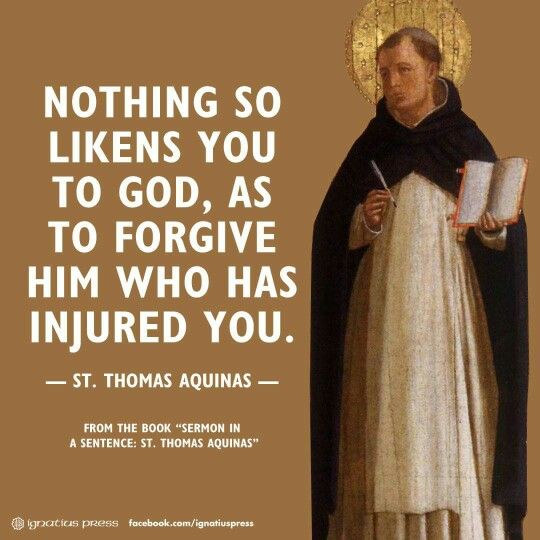
Sweet Jesus, Body and Blood most Holy, be the delight and pleasure of my soul, my strength and salvation in all temptations, my joy and peace in every trial, my light and guide in every word and deed, and my final protector in death. Amen (Thomas Aquinas)
Read in advance of meeting:
Do we really know and understand St. Thomas Aquinas? Tommaso d’Aquino (Thomas of Aquino) was an Italian born Dominican friar, Catholic priest, philosopher, and Doctor of the Church. He was born near present-day Lazio, Italy in 1225 into the family of the Count of Aquino one of the most influential, wealthy and powerful branch of the family. One brother was an Abbot, the other family members had military careers, it was expected that Thomas would follow into the abbacy, a course common to Italian nobility.
At age five, he began studies at Monte Cassino, following the military conflict between Emperor Frederick II and Pope Gregory IX, the family enrolled him at stadium generale (university) established by Frederick in Naples. He was introduced to Aristotle, Maimonides, the Islamic philosopher Ibn Rushid, often Latinized as Averroes, and others who would influence his thought. He was also influenced by John of St. Julian, a Dominican priest.
At age nineteen, against his families wishes, he planned to enter the Dominican Order. He was abducted by family and seduced by a prostitute, whom he declined, and was held captive for a year as his family urged him to renounce his intentions. His mother, desiring to save the dignity of the family, helped him escape in the night and he journeyed to Naples, and then to Rome and later to the University of Paris (1245) for further study.
He taught in Cologne, Germany (1252) and was later appointed regent master at the University of Paris (1256). Among his works in Paris was Questiones disputatae de veritate (Disputed Questions of Truth) — twenty-nine questions on the human condition and faith. While in Paris, he began working on Summa contra Gentiles.
In 1259 he returned to Naples and in 1265, newly elected Pope Clement IV appointed him to Rome as papal theologian.
The Dominicans assigned him to stadium Santa Sabina (1265-1268) where he began writing his greatest work Summa theologiae. He was suddenly reassigned to Paris for a second time due to the rise of Averroism (radical Arisotelianism).
There he was accused of encouraging Averroism, Thomas was angered by the spread of the belief. In the faith community, there was concern that the teaching would stain the purity of the Christian faith. He later moved to Naples continuing his writing and teaching. While in Naples there are accounts of him levitating and in ecstasy during a Mass. He later fell ill and died in 1274. He was canonized in 1323.
He was a philosopher (although never considering himself as one), and often criticized other philosophers. His educational background gave him a deep understanding of Aristotle, that he respected, and other philosophers. Much of his work has a philosophical undercurrent. He was critical of philosophers (pagans) that he perceived falling short true and proper wisdom found in Christianity. He heavily influenced western philosophy.
He also incorporated issues on economics, political order, ethics, sin, just war, Trinity, God, Jesus, and other topics. But not just a philosopher, he was at the intersection of philosophy and religion and how the two could be used to shape faith – not in isolation or in opposition. He clearly understood how to use the media of the day, writing and lecturing, as a venue to convey his concepts of faith. Not only did his writing address issues leveled against the faith but also set out the foundation of the faith.
As a writer Summa contra Gentiles, written in four books from 1259-1265, was important as it aided missionaries and others disseminating the faith and offered defenses of it in doctrine of the Islam and Judaism communities.
But it was his greatest and unfinished work Summa theologiae written 1265-1274 offering 3,125 articles geared more toward students. It is a history of philosophy and faith and encompasses his entire thought process. It reflects the cyclic nature of the cosmos – God, creation, man, ethics, Christ and the Sacraments. It remains one of the cornerstones and resources for our Catholic Christian faith and understanding.
It is no exaggeration to say that Thomas Aquinas’ thought, which became known as “Thomism,” would literally dominate Catholic theology beginning near the end of the 13th Century and proceeding until the middle of the twentieth century.
Aquinas’s Feast Day is January 28th.
Father Hecker lived over five hundred years after Aquinas. This was a period of declining influence between the European Church and State with a rise in Americanism. Hecker understood open-mindedness of Americans and that American missionary work and evangelization would not be successful unless it used methods suited to this country (not Europe) and the age. Like Aquinas, Hecker too had been influenced by philosophical thought of the day shaping his missionary zeal. As Aquinas used writing and teaching, Hecker used lectures and publishing. As Aquinas wrote explaining and defending the faith, Hecker published and lectured across the country to mostly non-Catholics explaining and disseminating the faith.
Discussion Questions to Share in Your Group
- As a Paulist Associate, thinking of Aquinas and Hecker, what methods do you see most effective in reaching to others and evangelizing in today’s world? How can we do this more effectively?
- How do you personally evangelize as an Associate?
- How has our culture, consumerism, social upheaval, and world affairs impacted our faith? How do we turn these impediments into opportunities of faith?
News/Announcements/Prayers for Others:
Closing Prayer:
We are always happy to hear about new Associates taking promises as well as current Paulists renewing theirs. Please post notices and photos on Facebook and let us know so we can add the information in this newsletter.
When these renewals take place, it would be helpful to all if the local coordinator would send an updated list of Associates to Kathleen Lossau so she can keep our contact list current. Please email contact information for those taking first promises and those renewing promises as well as a list of those who have opted not to renewing promises to Kathleen Lossau <[email protected]>.
By Mike Kallock, CSP
Last month I informed you of my stepping into the role of the Paulist Novice Director. In this issue, we introduced you to Zach Turner and Luke Heffernan our 2020 Novice Class. Some have asked, what is a novice? What is a Novitiate?
Unlike the training for a diocesan priest, religious communities of men and women have the first year of their training stand alone, focused on the “novice” discerning through prayer and reflection whether they have a vocation to their way of life. During the novitiate, the novice learns about and experiences in interaction with the members of that community its unique charism and mission. Some religious communities even have a two-year novitiate.
A National Virtual Retreat is being planned. We normally have a regional retreat every other year. This year our Texas associates in Austin and Horseshoe Bay were going to host the regional retreat in October. But, as we all know, the pandemic has put an end to lots of people’s plans.
I am pleased to say, however, we are progressing on a virtual retreat. Our Board has decided on the date Friday – Saturday November 20-21. Friday evening, we will set the tone for the retreat with an Introduction/Prayer Service. What is important right now is that you save the date.
The retreat’s theme is Spirit in America. We will explore our need today for the Holy Spirit; how the Holy Spirit is guiding us; and how the Holy Spirit is bringing us into union.
Kudos, finally, to almost all groups engaging the opportunity to meet virtually. Some are visiting others virtual meetings.
I had the pleasure on Saturday August 29th to join the Tampa Bay/Florida associates who invited the Vero Beach associates-in-formation to get a taste of what our meetings are like. Paulist Mike Martin did a fantastic job presenting our Patroness Elizabeth Seton. Denis Hurley, Boston associate and co-editor of the Newsletter, joined the meeting, along with Peg Hart, John XXIII/Knoxville associate. The virtual room has given us a tremendous opportunity to connect, learn, and support one another.
Our Los Angeles Associates have stepped up again (August: Elizabeth Seton) to do The Blessed Immaculate Virgin Mary in January 2021. We are now covered for all our patrons and patronesses.
| Schedule of Our Monthly Proprosed Programs for our 15 Paulist Patrons | |||
|
Oct |
John Henry Newman – Columbus |
Jan |
The Blessed Immaculate Virgin Mary – Los Angeles |
|
Nov |
John XXIII – West Michigan |
Feb |
Alphonsus Liguori – Mike Kallock, CSP |
|
Dec |
Thomas Aquinas – Knoxville |
Mar |
Patrick – Rome |
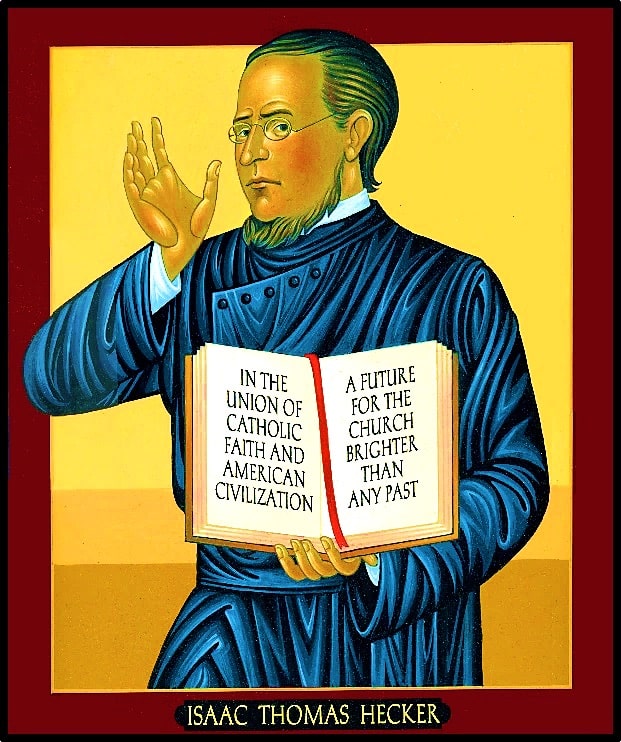
Look upon us this day, with compassion and hope. Hear our prayer. We ask that through the intercession of Father Hecker your servant, you might grant us (state the request).
We ask this in the name of Jesus Christ, Your Son, Our Lord, who lives and reigns with You and the Holy Spirit. One God, forever and ever. Amen.
When you pray this prayer, and if you believe that you have received any favors through Hecker’s intercession, please contact the Office of the Cause for Canonization of Servant of God, Isaac Hecker at [email protected]. Visit the web site: isaachecker.org to learn more about his life and the cause for his canonization.
Paulist Associates National Director
Mike Kallock, CSP
Paulist General Office
New York, NY 10023
Board Members
Carol Wagner Williams
Tuscon, AZ
Frank Desiderio, C.S.P.
Katherine Murphy Mertzlufft
Columbus, OH
Joe Scott, CSP
David Rooney
Chicago, IL
Mary Sullivan
Boston, MA
I believe that I am drawn by the Holy Spirit to the spirituality and qualities of the Paulist Community. I have discerned both by prayer and study that God calls me to become associated with the Paulists. I promise that I will pray for the works of the Paulist Society, meet with others, who are also members of the Paulist Associates, for spiritual sharing and formation; and I seek to embody the apostolic qualities of the Paulists in my daily life.
Attentive to the Holy Spirit and faithful to the example of St. Paul and the charism of Father Isaac Hecker, I commit myself for one year of membership in the Paulist Associates.
